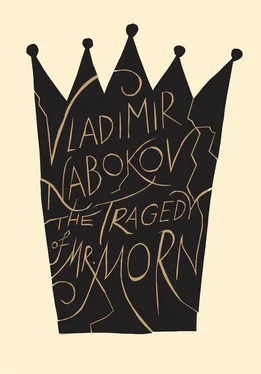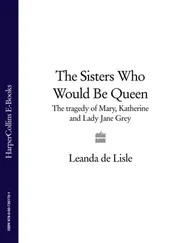But, you see—the moulded whimsy of a frieze
on a portico keeps us from recognizing,
sometimes, the symmetry of the whole…
( IV.)
Or Dandilio compares moments of life, good and bad, to pearls which a deep-sea diver must clutch up indiscriminately in his brief breathless moments at the bottom of the ocean, and pursues the metaphor to a visionary limit far beyond any which the mind can easily grasp:
And he who seeks only pearls, setting aside
shell after shell, that man shall come to
the Creator, to the Master, with empty hands—
and he will find that he is deaf and dumb
in heaven…
( I.ii.)
The conceits are often as whimsical as those in Shakespeare, defying that Enlightenment ideal of rhetorical decorum according to which Shakespeare’s imagination was deplored as savage and untutored. So Tremens declares that
…The soul is like a tooth, God
wrenches out the soul—crunch!—and it is over…
What comes next? Unthinkable nausea and then—
the void, spirals of madness—and the feeling of being
a swirling spermatozoid—and then darkness,
darkness—the velvety abyss of the grave…
( II.)
Or, earlier, he remembers an evening in which he “shook with fever,/rippling like a reflection in an ice-hole” ( I.i.). One is reminded of a line in Chapter 26 of Nabokov’s penultimate novel, Transparent Things , which was finished nearly fifty years after Morn , in 1972, about “an African nun in an arctic convent touching with delight the fragile clock of her first dandelion.” Such wild conceits, yoking together hot fancy and cold reason, are common in Nabokov’s mature style. They derive, as Morn helps us to see, from Shakespeare, and mark the rebellion of Nabokov’s genius against the decorousness of the Age of Reason.
Equally Shakespearean is Nabokov’s subtly reasoned orchestration of many different voices and registers. At one extreme, we have the high-toned rhetoric of Tremens, Klian, Morn, Dandilio, and Ganus, each of whom Nabokov endows with an individual voice that speaks of their desires, values, and condition. The first note struck is that of Tremens’s feverish rhetoric, tightly coiled upon itself, thickly patterned with spite and self-pity, and embroidered with antique curses: “Begone, fever, you snake!” ( I.i.). In Klian, the court poet of Tremens’s revolution, that destructiveness finds a sexual urgency which takes his rhetoric to the very limit of intelligibility. In our translation, we have allowed many of his speeches to remain as obscure in English as they are in the original Russian, where they seem to evince his commitment to the revolutionary poetics of violence upon the word associated with such poets as Vladimir Mayakovsky (1893–1930), on whom he may be modelled.
At the other pole of the play’s rhetoric are Morn and Dandilio: in Morn there is a noble purity and simplicity of speech—“radiant,” to identify it by one of Morn’s own favourite words. Although Morn is not a poet, he has the champagne-like effervescence he himself identifies with creativity, and it is definitive of him that when Ganus attacks him he responds with the carefree laughter which gives him his power. Dandilio shares with Morn this equanimity, which is not to be mistaken for a Buddhist absence of will or desire: on the contrary, Dandilio urges that life be embraced without scruple or discrimination. He is a snuff-taking eighteenth-century Optimist of the kind Voltaire famously satirized in Candide , and whom Nabokov would reprise in the figure of Pale Fire ’s John Shade. He believes that all in the world is well, good and evil, Morn and Tremens alike. In the compressed aphorisms of his speeches the sententious gravity of the Age of Reason is combined with the intermittently childlike and singsong tenor of its thought.
Indeed, memories of childhood, and especially of the pains and illnesses of childhood, stud the play, introducing into it a domestic counterpoint to the stagy rhetoric, in something like the way that Shakespeare typically sets tavern against court, and prose against verse. (The Old Man who enters to clean up after Edmin and Morn have fled is, with his rustic speech, closely reminiscent of such Shakespearean characters as the Porter in Macbeth .) Dandilio says that life assuages all pain, like a mother rushing in to kiss better a child who has scratched itself (ii. 340–45); Midia says her soul is attached to Morn like a child’s tongue to the metal it has licked on a frosty day (I.ii. 253–56); and the feel of a cold gun muzzle pressing up against his chest reminds Morn, at a moment when he is considering suicide, of the “lacquer tube” a doctor once pressed against his chest ( III.i.). In Ella that domesticity is articulated with a freshness that is essential to the total effect of the play, and it is telling that she often expresses herself in gestures—twirling, stroking the air—rather than in the destructive speechifying of Tremens, Klian, and Ganus.
As all of the above indicates, Morn presents some extraordinary difficulties to its translators. The task of translating it is all the more daunting because Nabokov was himself one of the most prominent modern critics of lazy and careless translation. As a young man, Nabokov had written elegant, readable translations of a range of English and French authors, from Carroll and Keats to Ronsard, Byron, and Shakespeare. In America, in the 1940s, he also produced verse translations into English of some of Pushkin’s little tragedies, of Fyodor Tyutchev, Mikhail Lermontov, and Afanasy Fet. Yet he began to stress the near-impossibility of successful translation, describing it in Chapter 7 of his 1947 novel Bend Sinister by the following extravagant analogy:
It was as if someone, having seen a certain oak tree (further called Individual T) growing in a certain land and casting its own unique shadow on the green and brown ground, had proceeded to erect in his garden a prodigiously intricate piece of machinery which in itself was as unlike that or any other tree as the translator’s inspiration and language were unlike those of the original author, but which, by means of ingenious combinations of parts, light effects, breeze-engendering engines, would, when completed, cast a shadow exactly similar to that of Individual T—the same outline, changing in the same manner, with the same double and single spots of suns rippling in the same position, at the same hour of the day.
Or, as he put it still more tersely, and (to a translator) intimidatingly, in his poem “On Translating ‘Eugene Onegin’” (1955):
What is translation? On a platter
A poet’s pale and glaring head,
A parrot’s screech, a monkey’s chatter,
And profanation of the dead.
That translation of Pushkin’s Eugene Onegin , which was published in 1964 alongside three volumes of commentary, is famous, or notorious, for its defiant fidelity to rendering the exact and complete meaning of the original text at the expense of readability or elegance in English—a fidelity that Nabokov called “the servile path.”
Our policy has been to prioritize accuracy to Nabokov’s language, wherever possible, but we have not sought to produce a crib, as Nabokov did in his translation of Eugene Onegin . Rather we have aimed to find words, phrases, and rhythms which do justice both to the exact shades of meaning and to the very various tones and registers of Nabokov’s Morn —and to finish with a text that re-creates at least some of the power and beauty of the original, both in private reading and in performance. Our goal has been to produce a text that does not sound like a translation, but like the play that Nabokov would have written had he written Morn in English in 1923. That ideal is not entirely speculative, given that we do have some poems and essays which Nabokov wrote in English in the early 1920s, as well as the example of his own translations of his early Russian work into English, and his own writings in English. Nabokov read and wrote English from an early age, studied in Cambridge from 1919 to 1922. and was regarded by the other Russian émigrés as strongly oriented towards England and the English language. There are places in Morn , especially in the speeches of the title character, where the Russian hints of English—as, conversely, in Pnin and Lolita , Nabokov writes an English which sounds distinctly foreign. There are also many places in the text, and especially in Tremens’s and Klian’s speeches, where the Russian language is being deliberately wrenched into a revolutionary strangeness.
Читать дальше










